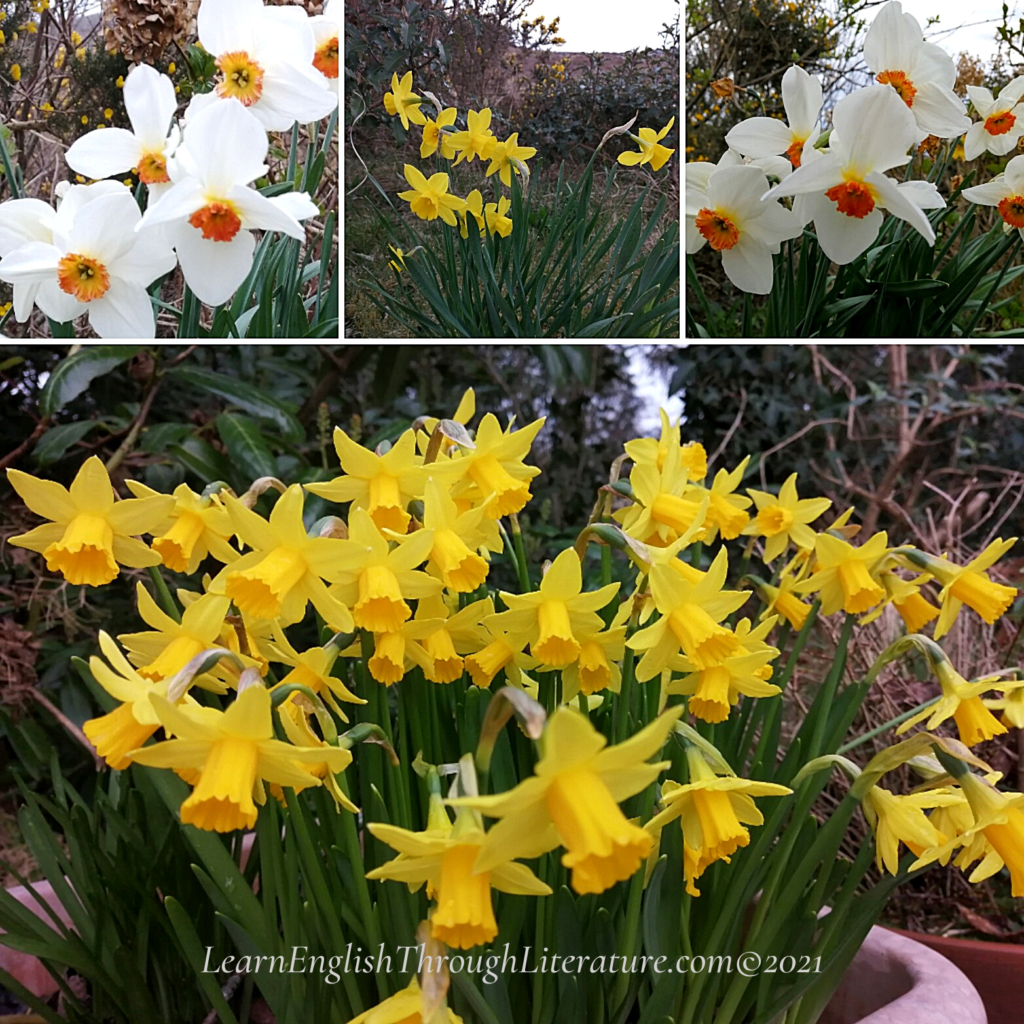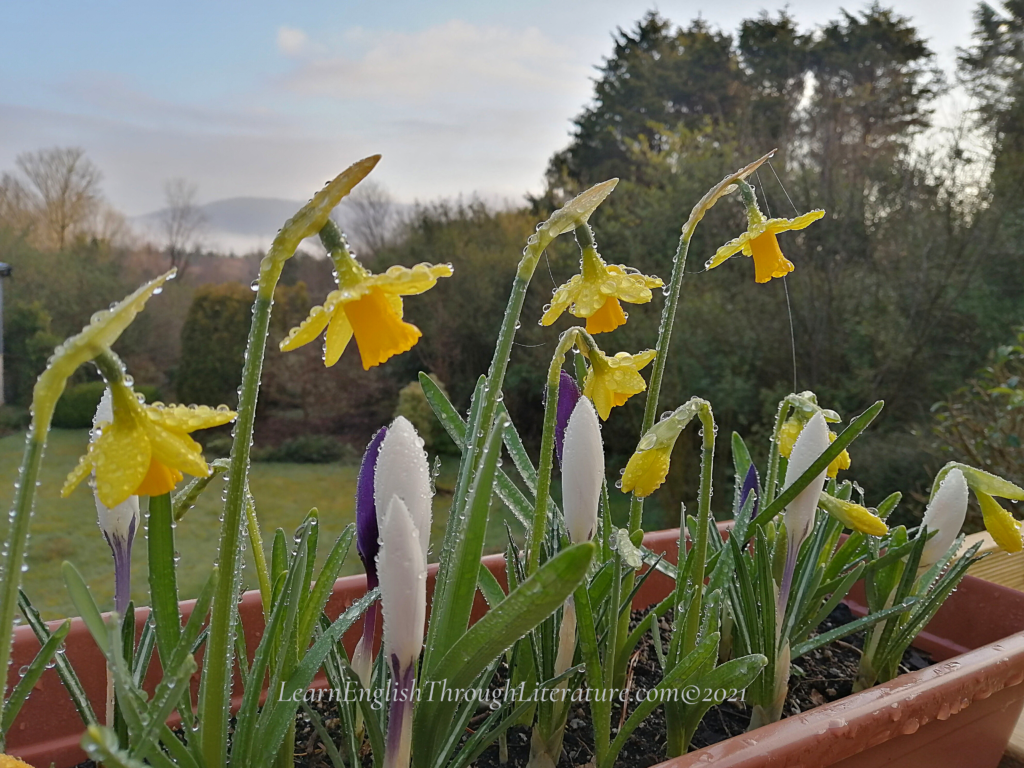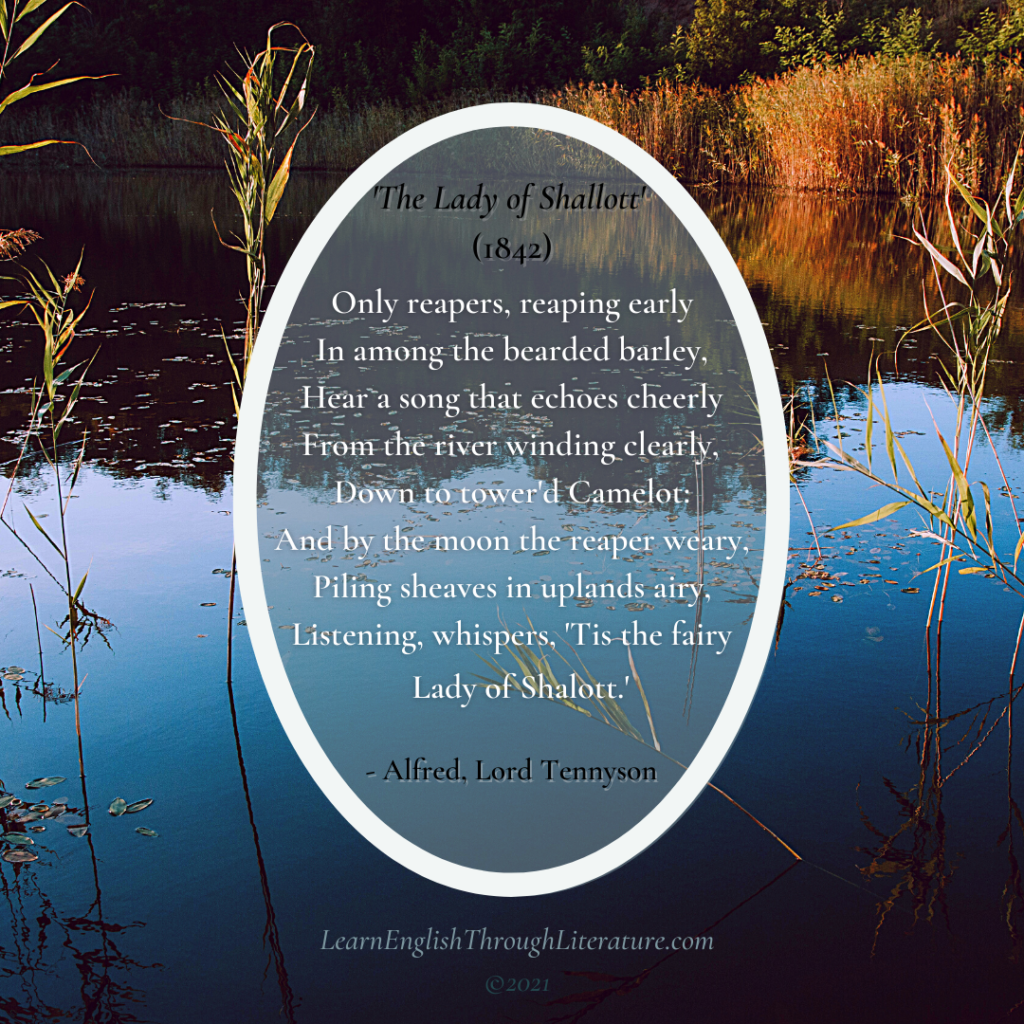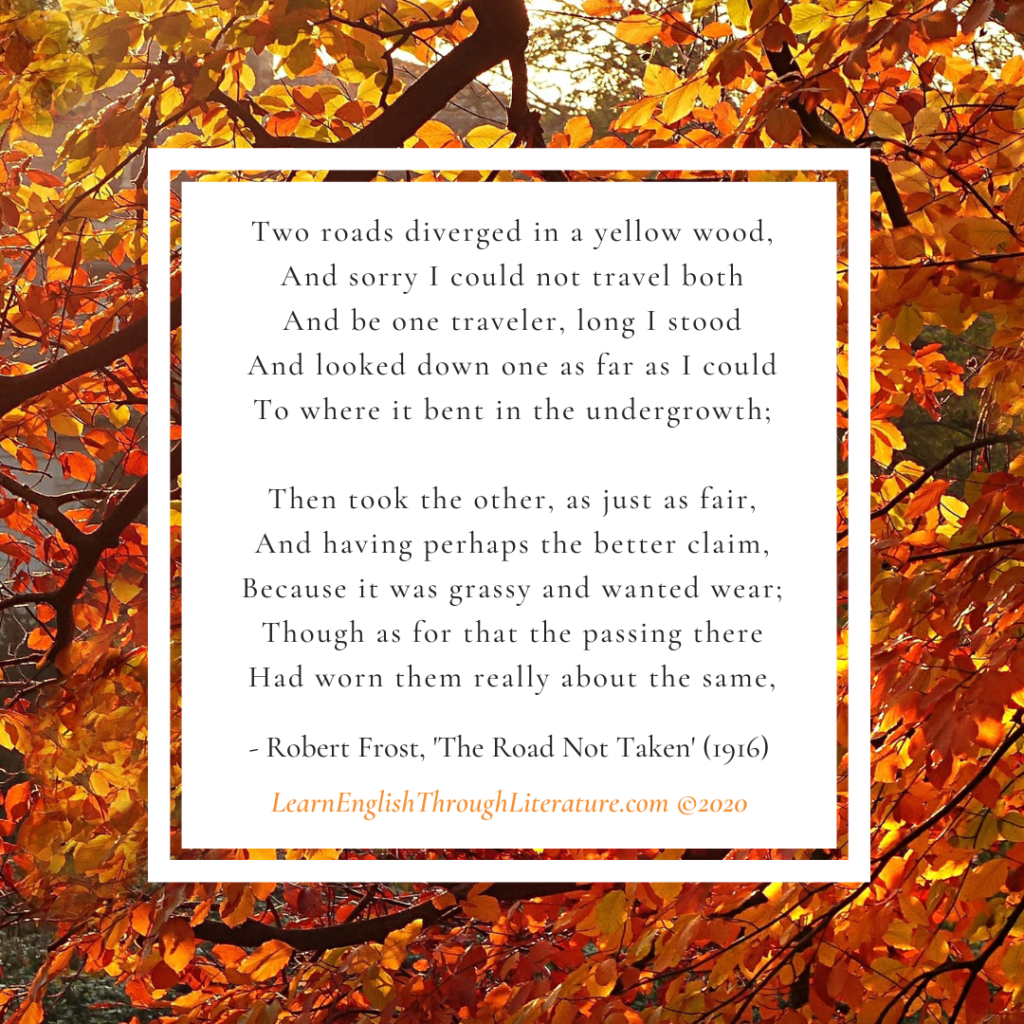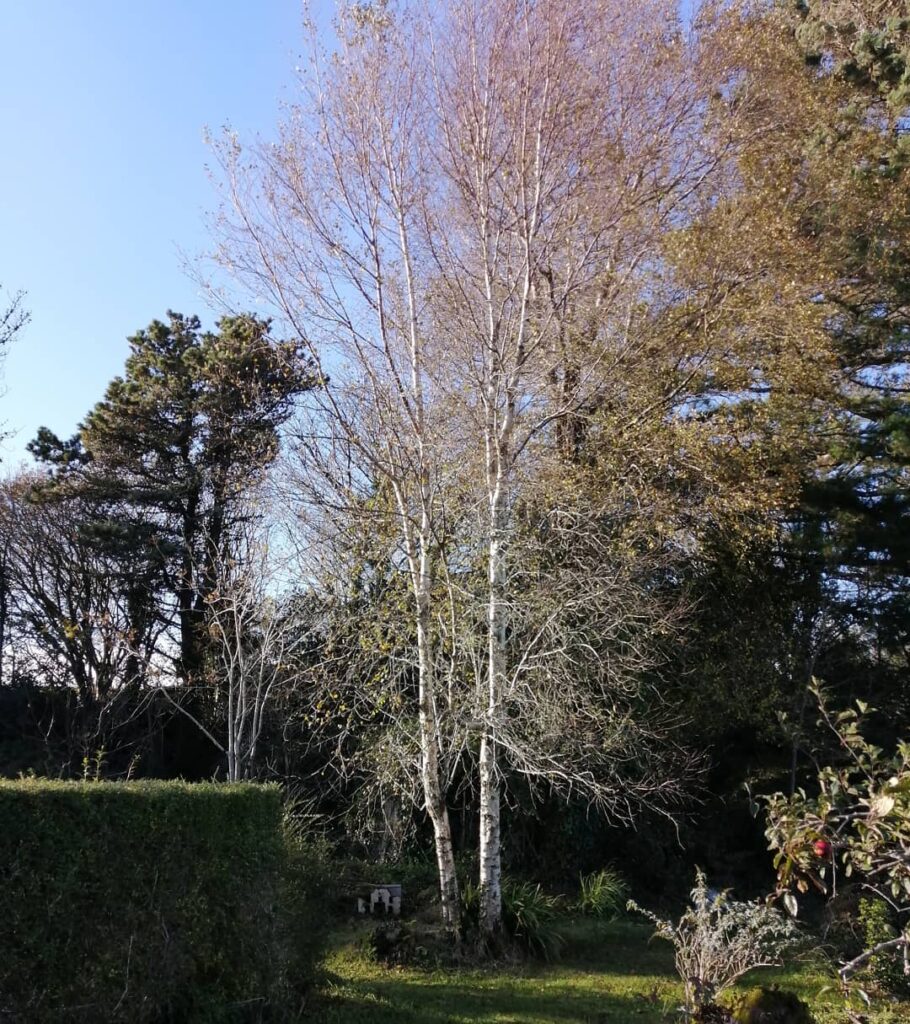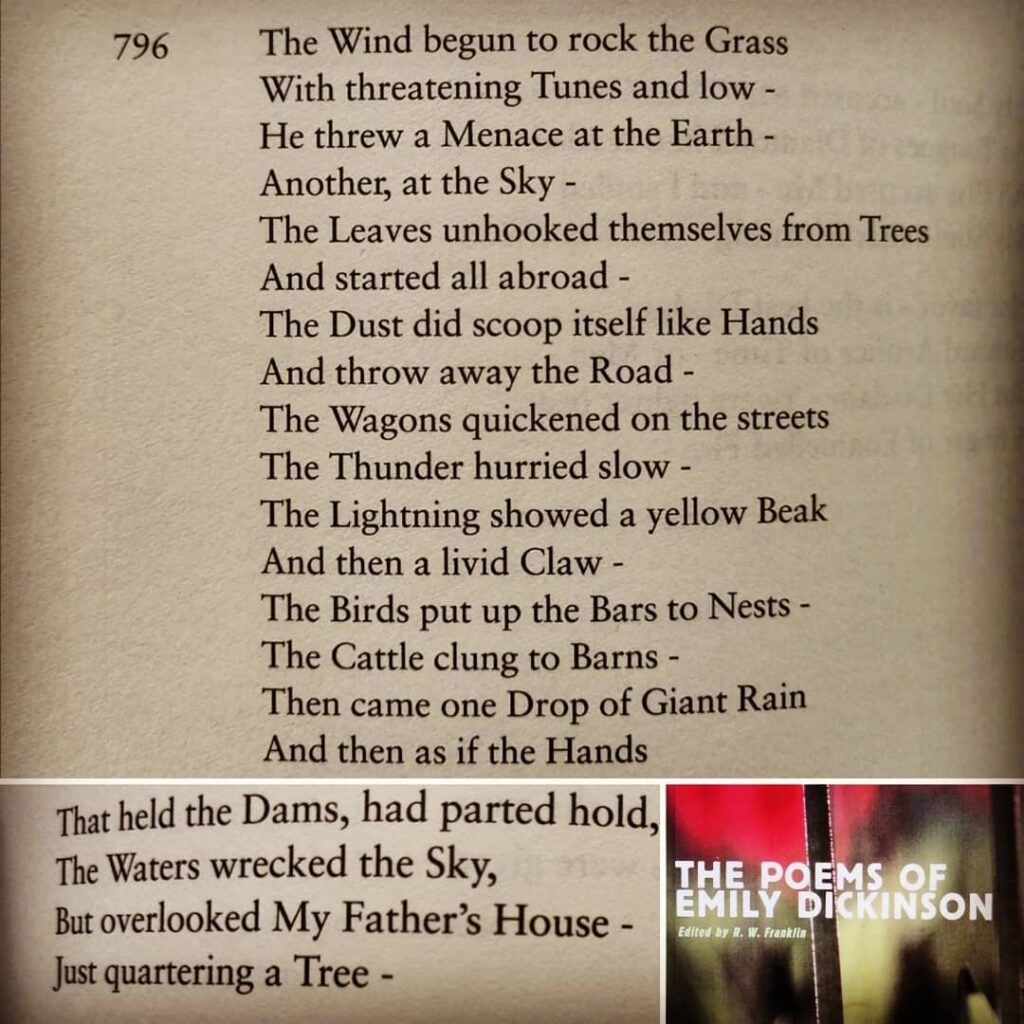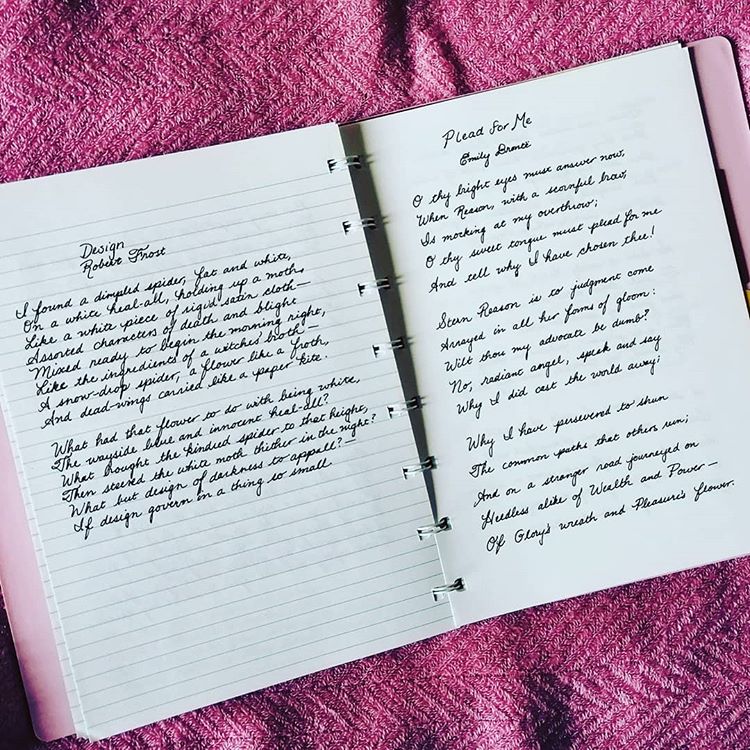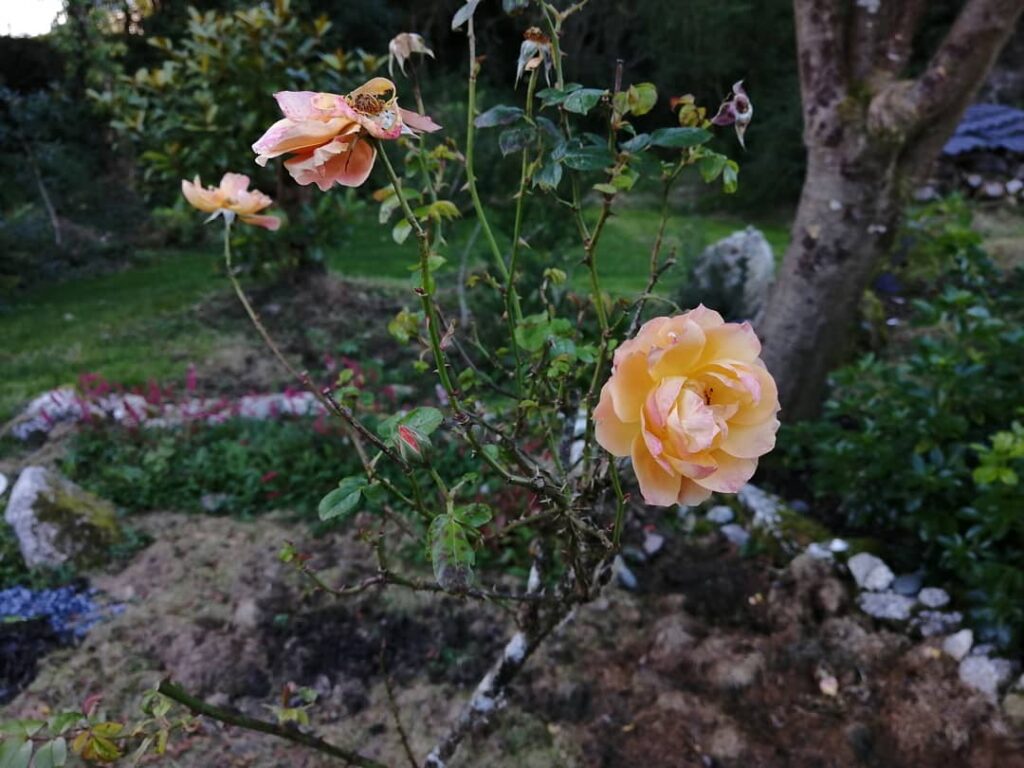Mini-Lesson Monday, Lesson #200 (Part 2): Different Ways of Seeing: Wordsworth’s ‘The Daffodils’
🌼I wandered lonely as a cloud That floats on high o’er vales and hills, When all at once I saw a crowd, A host, of golden daffodils … – William Wordsworth, ‘The Daffodils’ (1807) 🌼 This is Part 2 of our Lesson on ‘Different Ways of Seeing’: having read Wordsworth’s poem in Part 1, we […]

